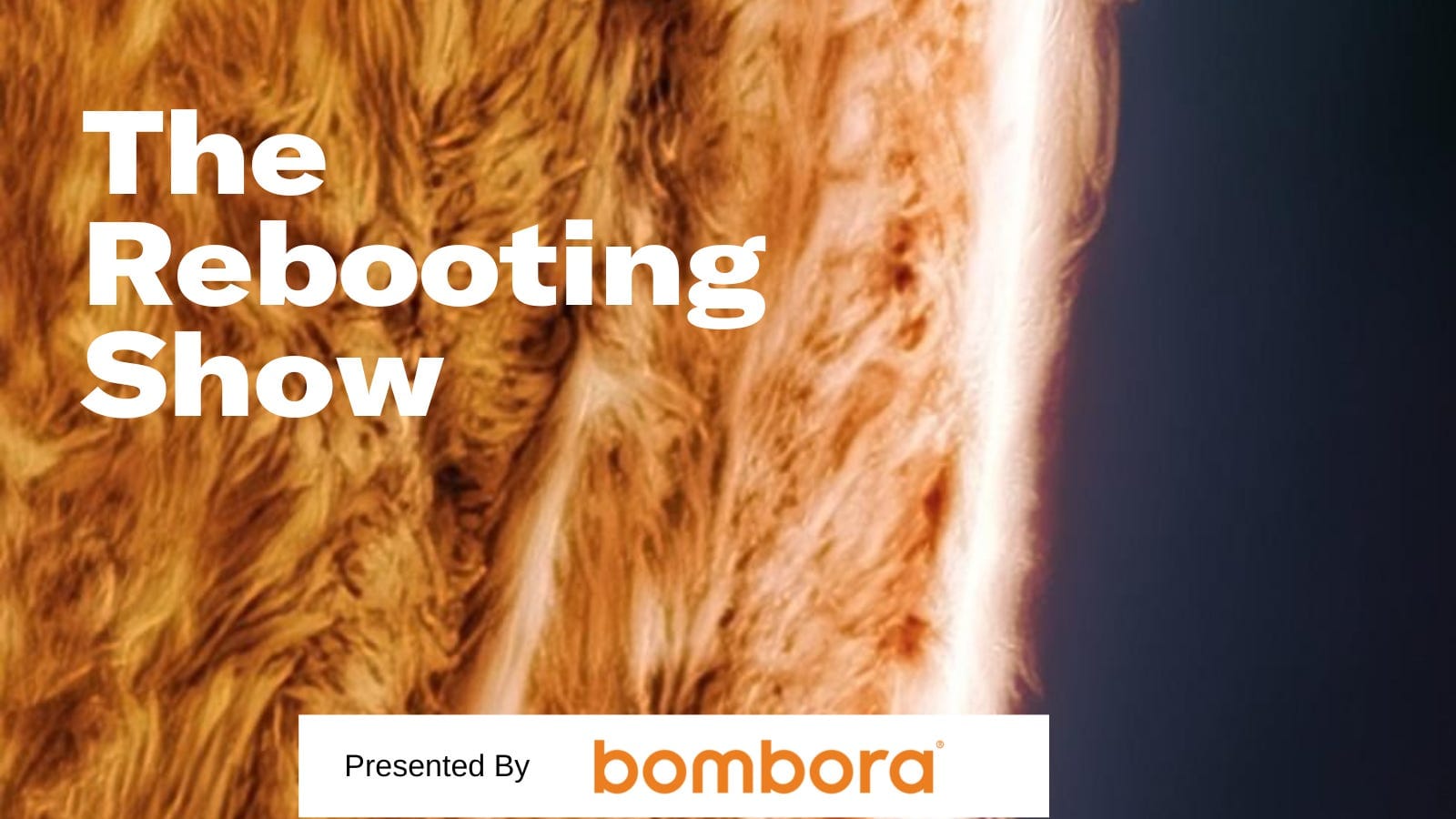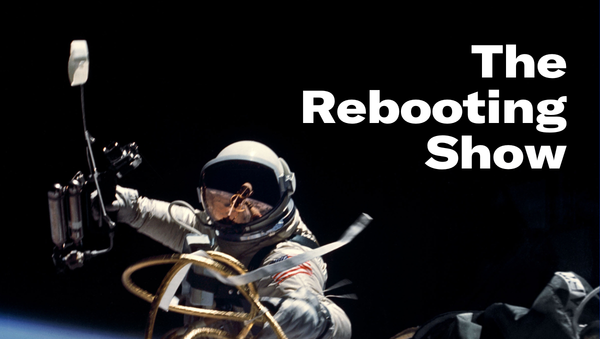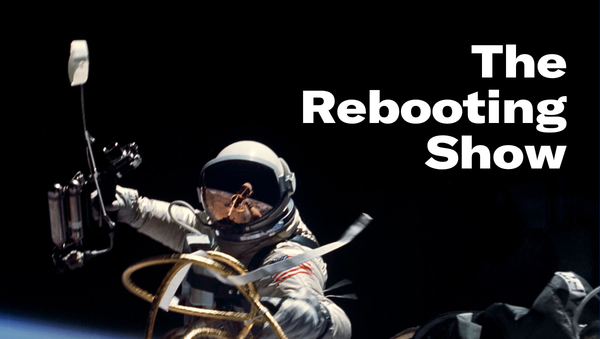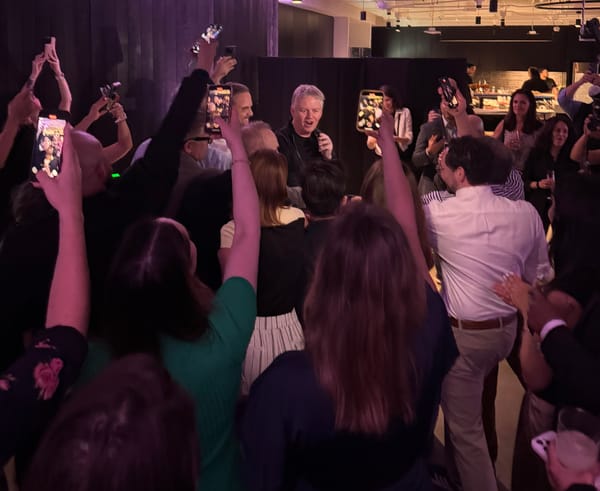The Hustle 2.0
The business newsletter's new life as part of HubSpot

August is upon us. I’m using this slower time to both experiment with new formats as well as plan for the next phase of The Rebooting. Thanks to everyone who has subscribed, written to me (bmorrissey@gmail.com), shared this email and, of course, sponsored (really, write to me: bmorrisssey@gmail.com). Maybe it’s because I’m moving to New York in a month, but these next five weeks feel like the end of The Long Summer.
On this week’s episode of The Rebooting Show, I spoke with Jordan DiPietro, head of The Hustle at HubSpot. Find the episode on Apple, Spotify and Anchor. Later, some thoughts on ambition and productivity. First a message from Bombora, the data co-op publishers should check out.

The digital advertising industry breathed a sigh of relief that Google would once again push back the deadline for the phaseout of third-party cookies in its Chrome browser. Deadlines force focus, and the human tendency when a deadline gets pushed back is… stop working. That’s a major risk for publishers. Instead, they need to accelerate their digital transformation by getting in place systems that will leave them prepared for the (eventual) end to the third-party cookie. Here’s how Steve Lilly, svp of global data partnerships at Bombora, put it to me:
“The reality is most publishers that haven't started their data transformation. They don't have enough data. They may not even have the pipes. Start now figuring out all of these pieces so that you have some familiarity and you you're as nimble as you can be. When the cookies do go away, personnel are familiar with figuring out how to tell a story that connects the dots that creates continuity and a clear value chain that inherently requires greater accountability.”
Listen to my full conversation with Steve in this week’s episode of The Rebooting Show. Find out more about how Bombora helps publishers with their digital transformation journey.

The Hustle’s Jordan DiPietro on being a publisher inside a software company

The Hustle, along with Morning Brew, were the breakout hits of the business newsletter boomlet of the late 2010s. Morning Brew ended up part of Axel Springer in Oct. 2020, and a few months later, in Feb 2021, The Hustle was also bought, although by an unusual acquirer: marketing software company HubSpot.
The rationale of the deal fell along the lines of the thinking that all great companies have a media company inside of them. What’s more, HubSpot is a unique tech company in that it has long been at the forefront of investing heavily into content marketing as part of an “inbound” marketing strategy. With The Hustle, HubSpot saw access to an engaged list of 1.5 million subscribers at the time. The bet is that, without the pressure of hustling up ads, The Hustle could be the top and the middle of the funnel for businesses to discover HubSpot tools and services.
Jordan DiPietro, a veteran of The Motley Fool, joined HubSpot to run The Hustle just after the acquisition, after having spent time advising the company. The Hustle now claims 2 million subscribers to its daily email, which gives a meme-friendly dive into business news topics. For instance, yesterday’s edition of The Hustle covered Juul’s struggles and metaverse concerts, along with business blurbs – and a promotion to sign up for HubSpot’s big annual event, Inbound 2022. (Use HUSTLEDISCOUNT2022 to “cop 20% off.”)
“Being in the publishing game, when you're focused on ad dollars, that is a grind. The Hustle had [subscription service] Trends and, and certainly our plan was to accelerate the growth of Trends, but still a lot of our revenue came from advertising and that's just a different beast. Once it was acquired by HubSpot, the pressure to sell external ads was off, but instead to focus on being our own media buyer was attractive, especially knowing the business model behind HubSpot and the capital and the resources that HubSpot had.”
Three highlights:
The Morning Brew has spawned dozens of imitators who, in my shorthand, regurgitate news reported by others but add a bunch of memes and a heavy dose of “personality,” delivered succinctly with lots of bullet points. For The Hustle, there are bullet points and blurbs, but there’s also something more, a curiosity about business topics, particularly the somewhat offbeat. “Certainly you're going to get the tidbits of what's going on that week in finance and tech, etc,” Jordan said. “But you're going to get stories that have a slightly different point of view, and also that it's not just a regurgitation or a curation of what's going on.”
The Hustle’s expanding beyond email. DiPietro said the edit side has expanded since the acquisition, with the entire operation roughly the same size since some functions like ad sales were eliminated and others absorbed by HubSpot’s existing infrastructure. Since the HubSpot acquisition, The Hustle has focused more on podcasts, in addition to the core newsletter, with The Hustle Daily Show and My First Million, a popular podcast hosted by The Hustle founder Sam Parr and Shaan Puri. It is adding to those shows with a podcast network, and is soon expanding into video. “The podcast play, the YouTube play and some of the other things we're doing, they're all top of funnel,” Jordan said. “When you're a startup that's just trying to find an exit in two, three or four years, you just don't think that you have the luxury to go as top of funnel sometimes as we do now.”
We all have numbers to hit. While being the front end of a subscription software business has its upsides, accountability is a reality. Jordan oversees The Hustle as part of his remit a svp of marketing for HubSpot Media, the group that handles all content, like company blogs. The Hustle is measured based on “monthly media engagements” at the top of the funnel and then, as is typical in B2B, leads. “We just recently launched a Hustle blog to create Hustle content outside of just the newsletter,” Jordan said. “We create leads from that. We create leads from YouTube.We create leads from The Hustle daily newsletter.”
Check out the full interview on Apple, Spotify or Anchor – as well as my conversation with Steve Lilly about why publishers can’t go back to business as usual just because Google pushed back the date for ending the third-party cookie.
If you use Apple and like The Rebooting Show, please leave a rating and review. Hit reply with feedback and topic/guest suggestions.

On ambition and productivity
Something weird is going on in labor markets. All across the world, they’re constrained, hitting even the hospitality industry in southern European countries notorious for their high youth unemployment rates. There’s the old-head school of thought that “people just don’t want to work anymore,” frequently muttered by executives from one of their vacation homes. The answer is likely more complicated. The pandemic’s impacts won’t be fully known for many years. We will not know what keeping kids from school for so long does to their development for some time. We will not know if the current labor crunch is implausibly a result of “stimmies” or is a structural challenge that will drag economies for decades.
My own belief is that a sizable minority of people were changed by the experience of the pandemic – “I feel very different from who I was in December 2019,” one person says in Will Ashon’s new book “The Passengers” – and they do not want to go back to how things were done. And instead of listening to each other, seeking to understand and recognize we are all individuals who forge our own paths, the groups will instead shout on Twitter and accuse the others of being drones or lazy.
Perhaps what we’ve taken to calling The Great Reassessment is simply a blip, or as I’ve taken to jokingly call my time in Miami “a sabbatical from ambition.” My guess is there’s something deeper going on, as the pandemic forced many people to slow down and gave them space to think. That’s not often the case in capitalism, as we run through mazes and look for cheese in various corners. Google wants to figure out how to get its 175,000 (!) employees more focused and productive. Facebook CEO Mark Zuckerberg has pretty much begged slackers to leave, and clearly wasn’t pleased with Gary in Chicago. Companies will need to figure out how to motivate employees beyond the promise of a paycheck. Some are trying virtue signaling, but that’s an impossible game to win, since people have different causes and beliefs. If we do head into a downturn, we’ll likely see the Boss Class flex its muscles around the return to the office. (People in Ohio are already back doing awkward office happy hours.)
They’d do better to focus instead on how to address the root causes for this alienation many apparently feel from their work. Julia Hobsbawm, author of The Nowhere Office, put it well: “What people want less of now is pointless presenteeism, stress, toxic workplaces and the commute… People want autonomy and flexibility as much as they want promotion and professional careers, or more.”

Thanks so much for reading – and to Bombora for sponsoring. Send me an email with feedback: bmorrissey@gmail.com. And please share The Rebooting with a colleague or five.




